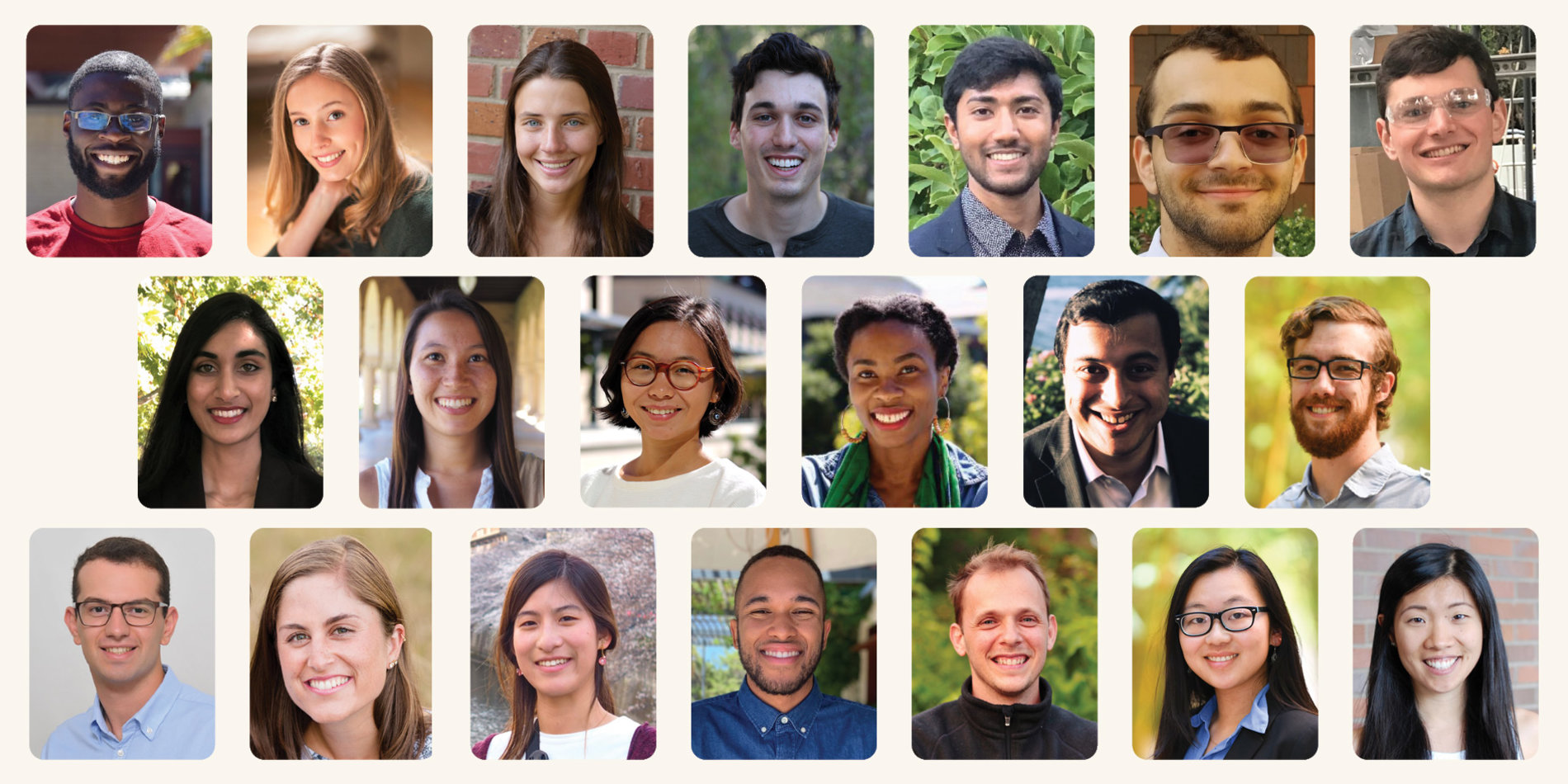A new advisory group works to improve graduate students’ experience
A group of graduate students in the School of Engineering is helping build a more positive environment for students to learn, work and thrive in the school.
It’s called the Dean’s Graduate Student Advisory Council (DGSAC) and, in its first year, has made major progress in advocating for engineering graduate students at Stanford.
“We are very pleased to have the opportunity to work with this group of students,” said Lourdes Andrade, who oversees student groups as the school’s director of Equity and Inclusion Initiatives. “They are working hard to elevate the voices of all graduate students in the School of Engineering, and to work in coordination with the school’s deans and chairs to make inroads on the issues that affect our student community and are important to all of us.”
The council is composed of 20 students, ideally two from each of the school’s nine departments and the Institute for Computational & Mathematical Engineering. Its charge is to coordinate efforts to address the issues that are important to graduate students across the school. Its main focus is to help increase transparency and communication between graduate students and school leadership, as well as to inform decision making.
In the coming weeks, the council will welcome its newest members and begin the challenging task of advocating for students during the academic year.
Addressing students’ needs
Andrade said the idea of creating a graduate student advisory group in the school grew out of the realization that many engineering students found they shared similar issues related to areas such as advising, funding, rotations and graduate timelines. Working with students, staff, faculty and administrators, Andrade and Tom Kenny, senior associate dean for student affairs, formed the advisory group to coordinate efforts to address these and other issues that are important to graduate students.
“We wanted to create a forum and formal structure for our graduate students to talk about and influence the areas that most directly affect them in their academic journeys,” said Kenny, who is a professor of mechanical engineering. “Faculty and staff are committed to supporting our students, and an important step in that process is listening to them and truly understanding their needs. This group helps ensure we have a mechanism for doing that.”
In the first few months since its launch last fall, the group focused on building its membership, developing its mission and setting goals. Since then, it has tackled six key areas: community and wellness; advisor-advisee relationships; communication and transparency; ensuring students’ academic and research goals are met in a timely manner; diversity; and funding. They have also gathered feedback from fellow students to learn more about their experiences in the School of Engineering.
Last spring, council members went before the school’s Executive Committee, made up of the deans and department chairs, to give the advisory group’s first presentation, which included several proposals, including establishing a student organization within each department to meet regularly with the department chair and developing a communication plan between students and their departments, the school and the university.
“We had a productive first year learning from each other about the different departments and collecting feedback from graduate students on issues that need to be addressed,” said Anni Zhang, a PhD student in chemical engineering, last year’s vice chair and incoming chair of the council for the 2020–21 academic year. “We’ve met with department leaders, and we hope that our suggestions in each of these focus areas will be considered and implemented. Improving the graduate experience is an ongoing effort and we started out strong.”
A challenging year ahead
As Stanford heads into the new academic year, it faces unprecedented challenges caused by COVID-19 and issues related to racial justice and anti-Black racism. Zhang said she and her fellow council members are mindful that challenges engineering students faced before the pandemic could be exacerbated by it. “One pressing topic we’re focusing on is diversity and inclusion,” Zhang said, adding that the council will also discuss how students and principal investigators set expectations for research, and how to help students find support during difficult times.
Andrade said that given the many pressing global challenges and the pressures students are facing, it’s more important than ever to have this close line of communication. “I’m thrilled we were able to launch the council in the past year, and that it started off so strongly,” she said. “As we begin the next academic year, I’m looking forward to working with the council and helping empower a strong student voice at the School of Engineering.”
Members of the council are selected through a self-nomination process and are asked to serve for two years. The council will welcome its newest members later this month. Students interested in learning more about the DGSAC and how to become a member can visit the school’s Graduate Programs website or contact Andrade at lourdesa@stanford.edu.



